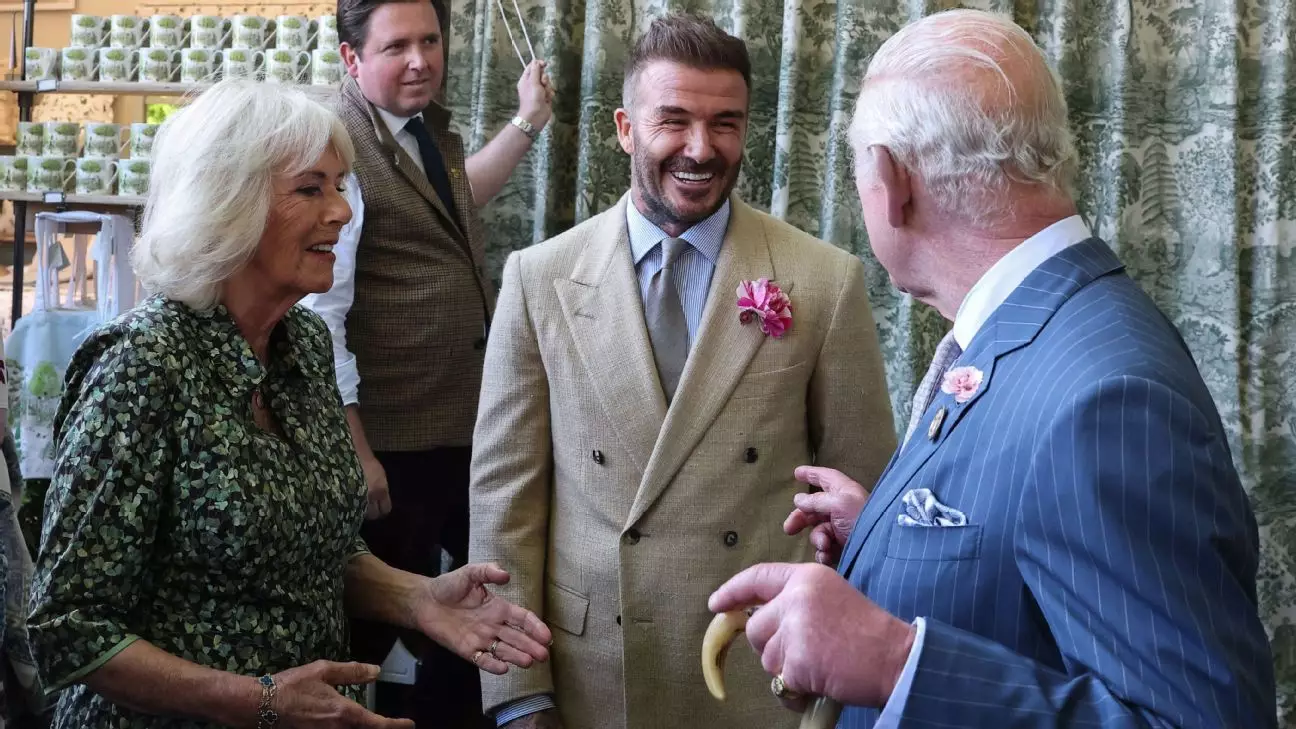David Beckham, a name synonymous with football and global sportsmanship, has achieved a remarkable milestone—being knighted in King Charles’ Birthday Honours list. This prestigious honor, awarded not solely for his athletic prowess but also for his philanthropic endeavors, signifies a culmination of a journey marked by both triumphs and turbulent times in Beckham’s life. The award highlights his relentless dedication to not just football, but to uplifting communities through significant charitable work, particularly in partnership with Unicef and King Charles’ The King’s Foundation.
Beckham’s statement rings true for many—a blend of pride, gratitude, and emotion. For him, representing England on an international platform has been both a dream realized and a source of profound fulfillment. It’s not just about winning matches and scoring goals; it’s about leaving a legacy that extends beyond the pitch, connecting with the next generation of athletes and inspiring them through genuine commitment to humanitarian causes. This perspective elevates Beckham beyond mere celebrity status; it positions him as a role model for aspiring talents and philanthropists alike.
The Long Road to Knighthood
Interestingly, Beckham’s path to receiving this knighthood wasn’t straightforward. His initial nomination in 2011 was marred by controversy, with allegations concerning tax avoidance presenting a significant hurdle. Such setbacks reveal the challenges that even the most celebrated figures can face in their journeys. The king’s honours system, which aims to recognize individuals for their contributions to society, sometimes becomes entangled in scandals and public scrutiny. Beckham’s previous criticisms of the honours system, stemming from leaked emails, positioned him at odds with the very institution that later honored him.
Despite this turbulent history, Beckham’s resilience shone through. The man who once faced public scrutiny has ultimately emerged more robust, ready to embrace this significant acknowledgment of his work. His ability to navigate through challenges speaks volumes about his character, demonstrating that success is often intertwined with perseverance in the face of adversity.
A Legacy Beyond Football
While many celebrate Beckham for his illustrious football career, boasting numerous caps for the England national team and impressive club achievements—such as six Premier League titles and a coveted treble victory in 1999—it’s his off-field contributions that truly set him apart. His pivotal role in raising the profile of Major League Soccer through his tenure with LA Galaxy transformed the landscape of American football, opening avenues for future athletes. Beckham’s influence expanded beyond the sport, positioning him as a formidable global ambassador.
Moreover, Beckham’s commitment to charitable endeavors paints a broader picture of his legacy. By partnering with Unicef since 2005 and becoming involved with King Charles’ charity, he has utilized his platform to instigate positive change. His ongoing work with charities shows a deep sense of responsibility towards society, valuing service over self-interest. This signature blend of sports excellence and genuine philanthropy reinforces the notion that athletes can use their fame as a force for good.
A Community Celebration
Following the announcement of his knighthood, heartfelt congratulations poured in from various corners, particularly from his beloved Manchester United, demonstrating the profound impact Beckham has had on his peers and the broader football community. The collective sentiment of pride underscores not only his individual accomplishments but also the sense of community and camaraderie within the sport. Beckham’s journey inspires fellow athletes to aim high, knowing that significant achievements are possible regardless of the obstacles that lay in their path.
Other noteworthy sportspersons recognized in the King’s Honours list serve to highlight the growing acknowledgment of contributions from varied disciplines, signaling a bright future for sports. Individuals like darts champion Luke Littler and Olympic gold-medalist Alistair Brownlee exemplify the diverse talent landscape we celebrate today. Their recognition alongside Beckham suggests a paradigm shift toward valuing not only excellence in performance but also service to others, signaling that sports can indeed be a collective force for societal good.
In the end, David Beckham’s knighthood stands as a testament to resilience, charity, and a lasting legacy that extends well beyond the football field. It illustrates a powerful story of how one individual can transcend their initial fame to become a beacon of hope and inspiration, paving the way for others to follow suit.

